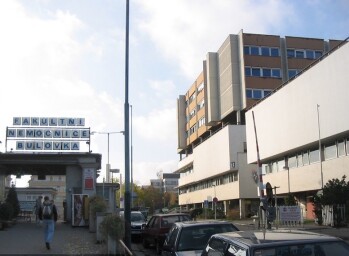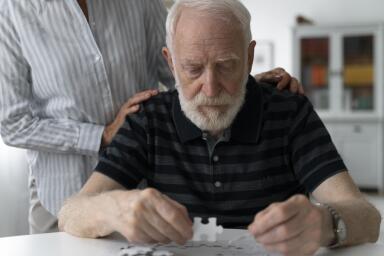Newly elected MEPs should base their actions on addiction on scientifically proven evidence, promote the concept of harm reduction and stop promoting the prohibitionist paradigm of the fight against drugs, which in effect creates an illegal market and costs huge amounts of money. They are encouraged to do so by a memorandum entitled The Czech Republic as a model for the EU, published by the Rational Addiction Policy Think-Tank together with the Harm Reduction Academy. It also argues that an informal group should be set up in the European Parliament to look at the topic of addiction and drug policy in greater detail.
„The issue of addiction has long received insufficient attention both at the level of the Member States and at the level of the European Union. Despite the significant health and social burden associated with illegal and legal drugs, the EU institutions have paid little attention to addiction in this parliamentary term and have pursued policies that are ineffective and do not bring about fundamental change. The new mandate of the European Parliament and the European Commission represents a key opportunity to remedy this situation, to change the conceptual outlook and to redefine priorities,“ the memorandum says.
The Czech Republic should be a model in its approach to addiction. We have succeeded in integrating all addiction issues into one policy that not only promotes a rational and balanced approach to illicit drugs, but also helps to increase the focus on the health aspects of tobacco and alcohol policy. Since the 1990s, the Czech drug policy has included a harm reduction approach, which is based on minimising the adverse health, economic and social impacts of addiction phenomena. Let us recall that the principle of harm reduction is also part of the current government’s programme declaration.
In contrast, the European Union is lagging behind in its modern approach to tackling the problem of addiction. ‚The European Commission’s ‚EU roadmap to fight drug trafficking and organised crime‘ is based on the prohibitionist paradigm of the ‚fight against drugs‘, whose effectiveness has been repeatedly questioned and whose validity is unsustainable in the light of modern knowledge about addiction and addiction policies. While the outputs of the European Monitoring Centre for Drugs and Drug Addiction (EMCDDA) and Europol provide valuable insights into the current situation with legal and illegal substances, their conclusions and interpretations are subservient to this prohibitionist ideology. In many respects, these documents are examples of ‚policy-based evidence‘ and many of the interpretations lack scientific basis, broader context and reflect the deep flaws of Europe’s outdated drug policy framework inertly built on the prohibitionist principle,“ the memorandum points out.
Yet it was during the Czech Presidency in December 2022 that the EU Council Conclusions on Human Rights in Drug Policies were successfully pushed through, contributing significantly to a paradigm shift in drug policies away from the criminalisation of addicts towards rational drug policies and greater humanisation of policies within the EU. At the same time, mental health issues returned to the top of the EU agenda after several years.
Mohlo by vás zajímat
But question marks remain, for example around the revision of the tobacco legislative framework, on which a public consultation last year highlighted the importance of harm reduction policies. While the Subcommittee on Public Health (SANT), in the context of the European Cancer Plan, recognised that „greater evidence-based health promotion, harm reduction policies and primary and secondary prevention of disease can reduce the prevalence of non-communicable diseases by up to 70 per cent“, the question is to what extent the harm reduction approach will be applied in the next legislative revision.
„Despite the continued efforts of MEPs to urge the European Commission to consider their work and valuable contributions, the call for evidence-based regulation has unfortunately not been heeded. So the question remains: Is the Commission really heeding the voices of those advocating a more informed and effective approach? Many consumers and civil society groups are concerned that the European Commission is focusing on its own restrictive understanding of substance regulation. The Commission seems to be isolating itself, marginalising voices calling for the regulation of alternative products to be based on scientific evidence of their harmfulness,“ said Helena Gherasim, Chair of the Association of Addiction Services Providers (APAS), in a commentary for The Brussels Times.
The seven pillars of rational policy
According to the memorandum, a rational EU addiction policy should be built on seven pillars. The first is evidence-based regulation of addictive substances and psychoactive products, which should be based on proven evidence and data, not on perceptions, as is often the case today.
„The starting point for the regulation of psychoactive substances and addictive products must be a comprehensive assessment of their risk profile based on the latest data and then set in the context of other (often already regulated) substances and products,“ the memorandum explains.
Another pillar should be European security and the rule of law. Experts point out that prohibition has the effect of creating an illegal market, strengthening the influence of criminal organisations and undemocratic regimes, and encouraging corruption and money laundering.
„Promoting the idea of a drug-free world increases spending on law enforcement and security, while profits from the illicit trade strengthen criminal structures and hostile regimes that pose a threat to security and the rule of law. Europe is therefore spending considerable resources to maintain a prohibitionist regime that ultimately represents a threat to its principles and values,“ the memorandum warns.
The emphasis on fundamental freedoms and human rights is also crucial, noting that EU citizens are often disproportionately punished for the use of psychoactive substances, which stands out in particular in contrast to the availability of alcohol.
The fourth pillar should be the concept of harm reduction, which should become a guiding principle and benchmark in the development of addiction strategies and regulations. Psychoactivity should not be an automatic reason for prohibition, while the supply of addictive products should be strictly regulated according to their harmfulness and users should be adequately informed of the effects and risks.
„We need to stop fighting psychoactive substances and start regulating their supply in a smart way. A modern approach to substance regulation that moves away from extreme starting points and solutions, as well as from the unfounded binary division of psychoactive substances into state-supported and state-suppressed, must be the starting point of a modern approach. Incidentally, in the area of legal products, that is, alcohol and tobacco and nicotine products, we also need a change from the other end in the same direction towards appropriate modern regulation, which must also aim to reduce health and social harms and costs. In fact, harm reduction should be the central principle and benchmark of addiction policies,“ explained drug expert Viktor Mravčík in an interview with iDnes.
Sharing the Czech model
Equally important is the availability of treatment, where member states and the EU should ensure better funding and strengthen prevention and support for addicts. Furthermore, the EU should invest in research related to drug and addiction policy, adapting its strategies to the latest scientific knowledge. At the same time, the impact of regulation should be regularly monitored and adjusted where necessary. The seventh pillar is international cooperation, where efforts should be made to reform existing global drug policies and promote a modern progressive approach to regulation rather than a prohibitionist approach.
Let us recall that member states are entirely responsible for health and drug policy, including the distribution of funds. The EU has a coordinating and supporting role in this area, complementing member states‘ actions to reduce the harmful effects of drugs on health, including in terms of information and prevention.
„We call on the candidates for the European Parliament, the newly elected MEPs and the European Commission to take the above points into account in their activities and decision-making in the coming period. At the same time, we call on future MEPs to consider setting up a new informal group within the European Parliament to focus in greater detail on the subject of addiction and drug policy. The activities of such a platform would allow for better sharing of the experience of the Czech model of progressive substance regulation and addiction policy, both with other member states and with the EU institutions directly involved in the formulation of recommendations and legislative framework,“ the memorandum adds.
-mk-












